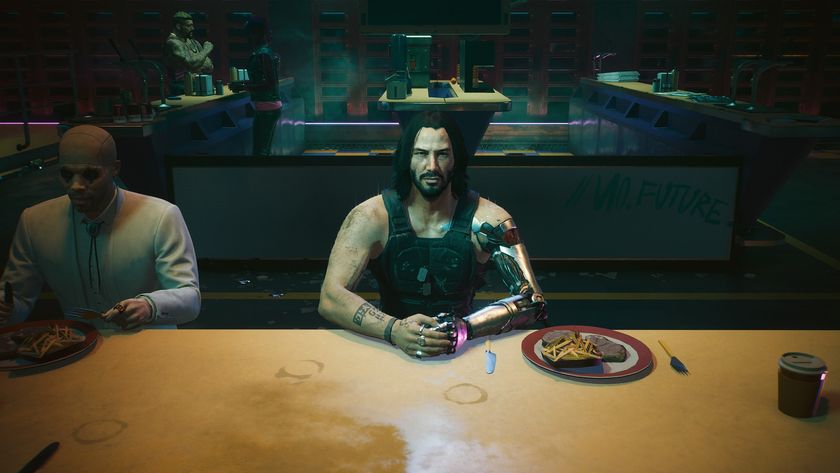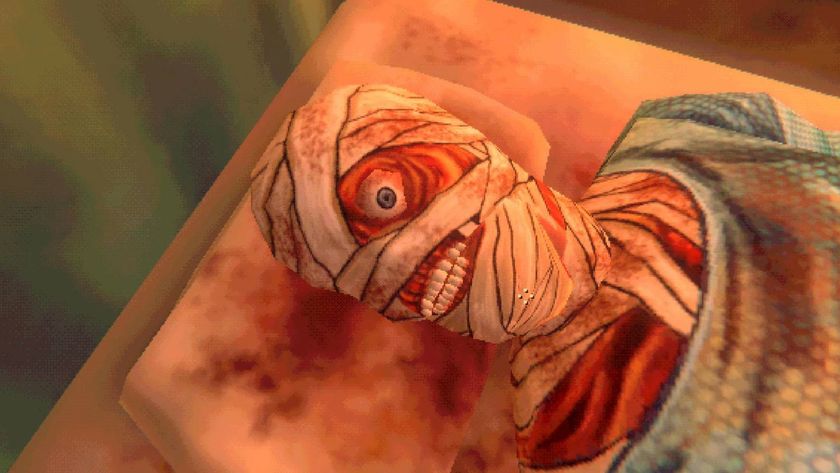Why you can trust 12DOVE
The BBC’s 2003 six-part drama State Of Play is widely reckoned – and with good reason – to be one of the benchmark TV drama series of the decade.
A dark, complex, street-smart thriller in which politics, journalism and big business swirled together in a toxic maelstrom, it boasted taut scripting from Paul Abbott, sharp, atmospheric direction from David Yates (who’s since gone on to intensive Harry Potter duties) and a crack cast (John Simm, David Morrissey, Kelly Macdonald, Bill Nighy, James McAvoy, Marc Warren, etc) with not a single weak link.
And now we’ve got the Hollywood movie version. If you remember the TV series (as anyone who saw it surely will) it’s inevitable to make comparisons. How do they stand up against each other?
Well, for a start the shift in venue from London to Washington DC has done the story no harm at all. Both are cities where private and public affairs dangerously intersect, where a hungry press lies in wait and a ripe scandal can spread like a virus leaking from a petri dish, and where politicians and businessmen are way deeper in each other’s pockets than is good for the rest of us.
The movie version’s MacGuffin works even better. On TV it was the manoeuvrings of a big oil company to avoid a clobbering on environmental grounds; on film it’s a bid by a huge, tentacular private security company called Pointcorps (think Halliburton or Bechtel) for a multi-billion-dollar contract to take over the running of Homeland Security. Which, in the wake of Iraq and what one character refers to as “the Muslim terror goldrush”, rings all too true.
As you’d expect, boiling down the action from six hours to two means that some of the intricacies and subplots have gone missing – but surprisingly little’s been lost that mars the narrative structure. The story’s essentially the same: when a researcher working for a rising young politico dies, seemingly accidentally, the press quickly sniff out that their relationship was more than professional. But then a reporter, an old friend of the politician, realises that the shooting of a young black man on the same day somehow ties in, and gradually exposes a murky tangle of skulduggery and murder where no one’s motives are what they seem.
Directing, Kevin Macdonald fulfils the promise of his feature debut The Last King Of Scotland, setting a gripping pace right from the off and negotiating the twisty slaloms of the plot with a sure touch.
But – you knew there was a ‘but’ coming, didn’t you? – in transposing the drama from small screen to big, something’s been added to the mix; and that something is cliché. It’s partly in the scripting. Where Paul Abbott wrote the TV series single-handed, three screenwriters have been brought in for the movie makeover – and although one of them, Tony Gilroy, has serious form (the Bourne trilogy and Michael Clayton), much of the dialogue has that committee-job feeling where everything has to be spelt out for any dummies in the popcorn seats. So we get people spouting lines like, “Now you have blood on your hands,” or (just to make quite sure we’re getting it), “This is as big and connected as they get.”
Ditto the characters. They’re all just that little bit broader, that tiny bit closer to Central Casting. Russell Crowe’s Cal McAffrey (the reporter role played on TV by John Simm) is overweight and slobby, with greasy lank hair; in other words, the star reporter gone to seed but retaining an edge of integrity beneath the cynical façade. Met him before? Mm-hm. Rachel McAdams, as his junior sidekick Della, is cute and perky the way young girl reporters must always be – and that Kelly Macdonald never was. And so on.
None of the acting is bad – even Ben Affleck as the flawed politico is way better than usual – but the roles do verge on stereotype. As do some of the situations. When Cal is hunted by a ruthless hitman, it’s in an underground car park – because, as we know from a thousand thrillers, underground car-parks are sinister places where bad things happen. And though we’re thankfully spared a love scene between Cal and Della, we still have to see them leave hand-in-hand in the final shot.
Despite its limitations, though, this is still a worthy entry in the genre. It’s pacy and gripping, with outstanding production values, and it retains the original’s healthily cynical take on the powers that be, while serving as a reminder in these wobbly times of the need for a robust press to keep corporate and government sleaze in check.
In the final analysis, for anyone who’s seen the TV series, the movie won’t snag your mind and linger there in the same way. But for everyone else, this will reach all the places that a skillful, effective political thriller should.
Philip Kemp
The Total Film team are made up of the finest minds in all of film journalism. They are: Editor Jane Crowther, Deputy Editor Matt Maytum, Reviews Ed Matthew Leyland, News Editor Jordan Farley, and Online Editor Emily Murray. Expect exclusive news, reviews, features, and more from the team behind the smarter movie magazine.

Cyberpunk 2 associate game director reveals his greatest development secret: 10 hour loops of music like "Epic Sax Guy" that "gives me insane focus and clarity"

After hitting 500,000 copies sold and nearly 24,000 reviews on Steam, viral $13 horror game Mouthwashing is coming to consoles this year

"A really sad day for speedrunning": The world's fastest gamers brace for a new Twitch storage limit on "all highlights and uploads"
Most Popular



